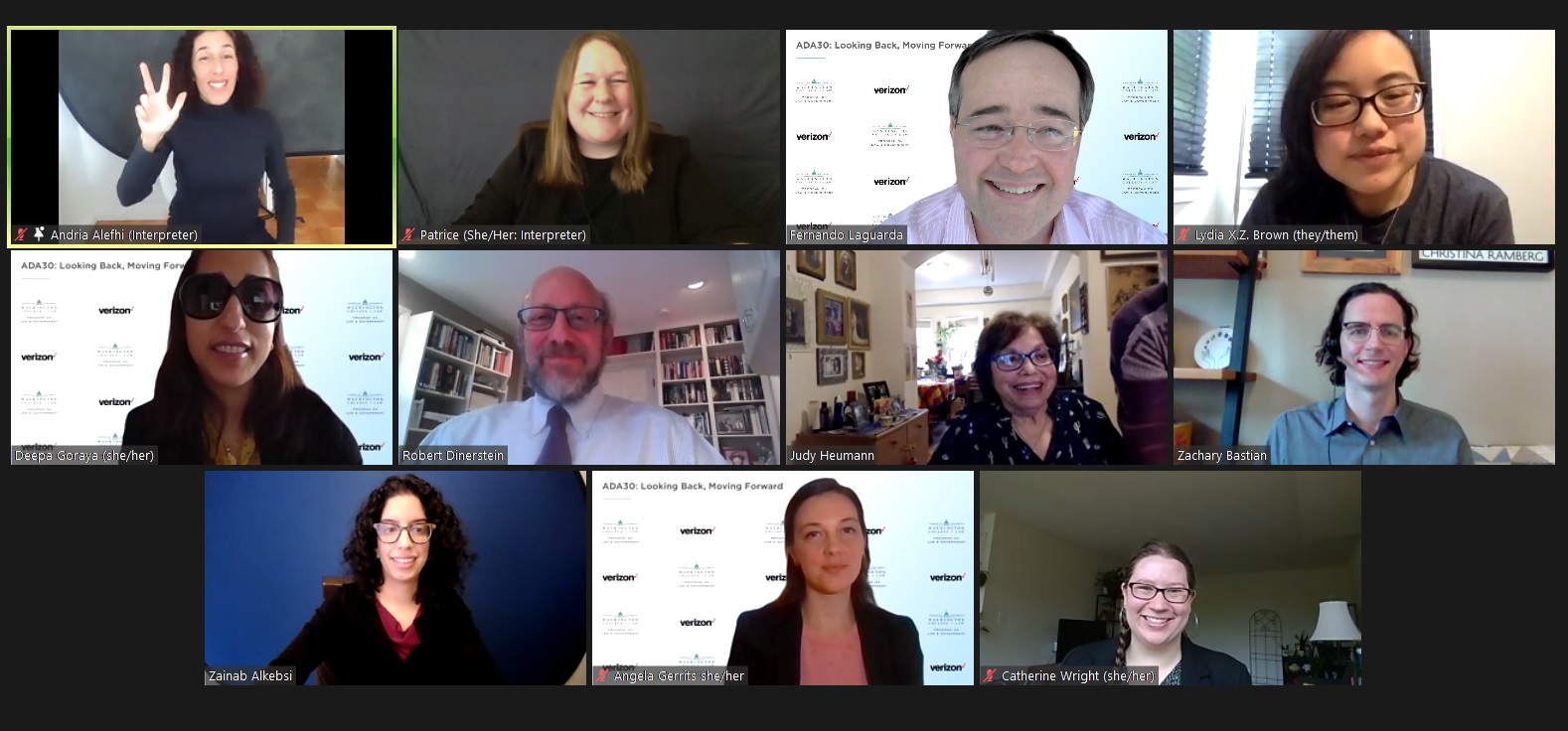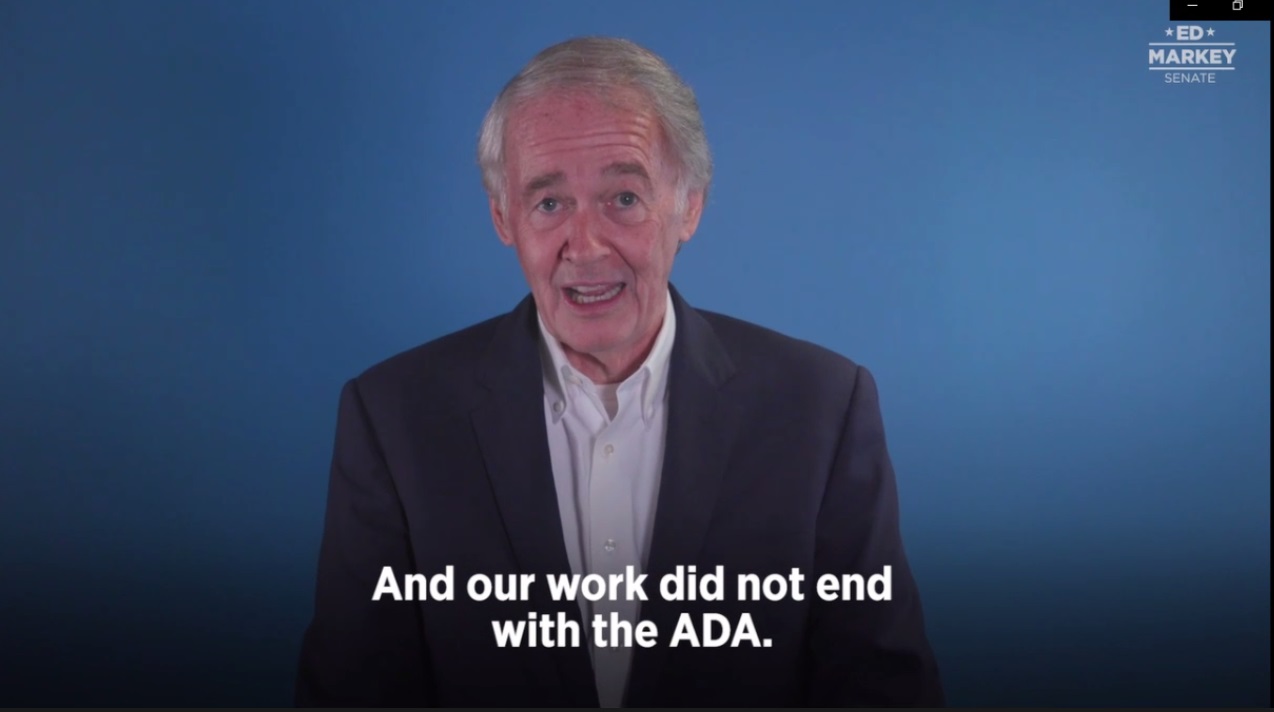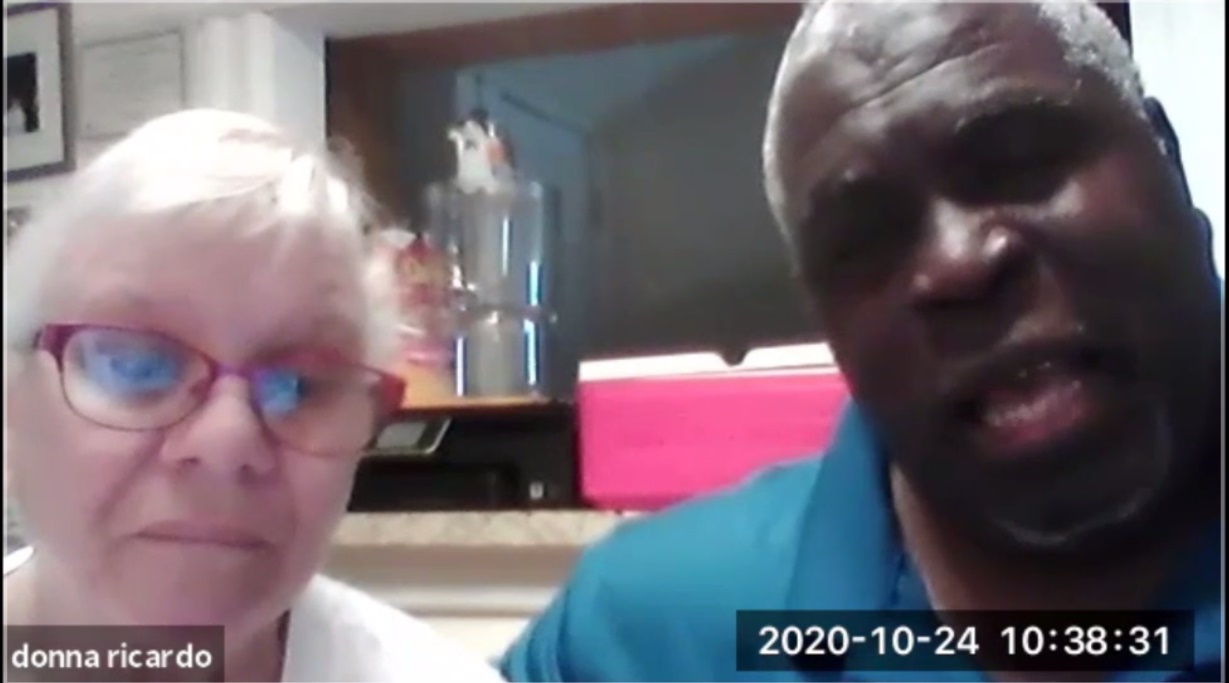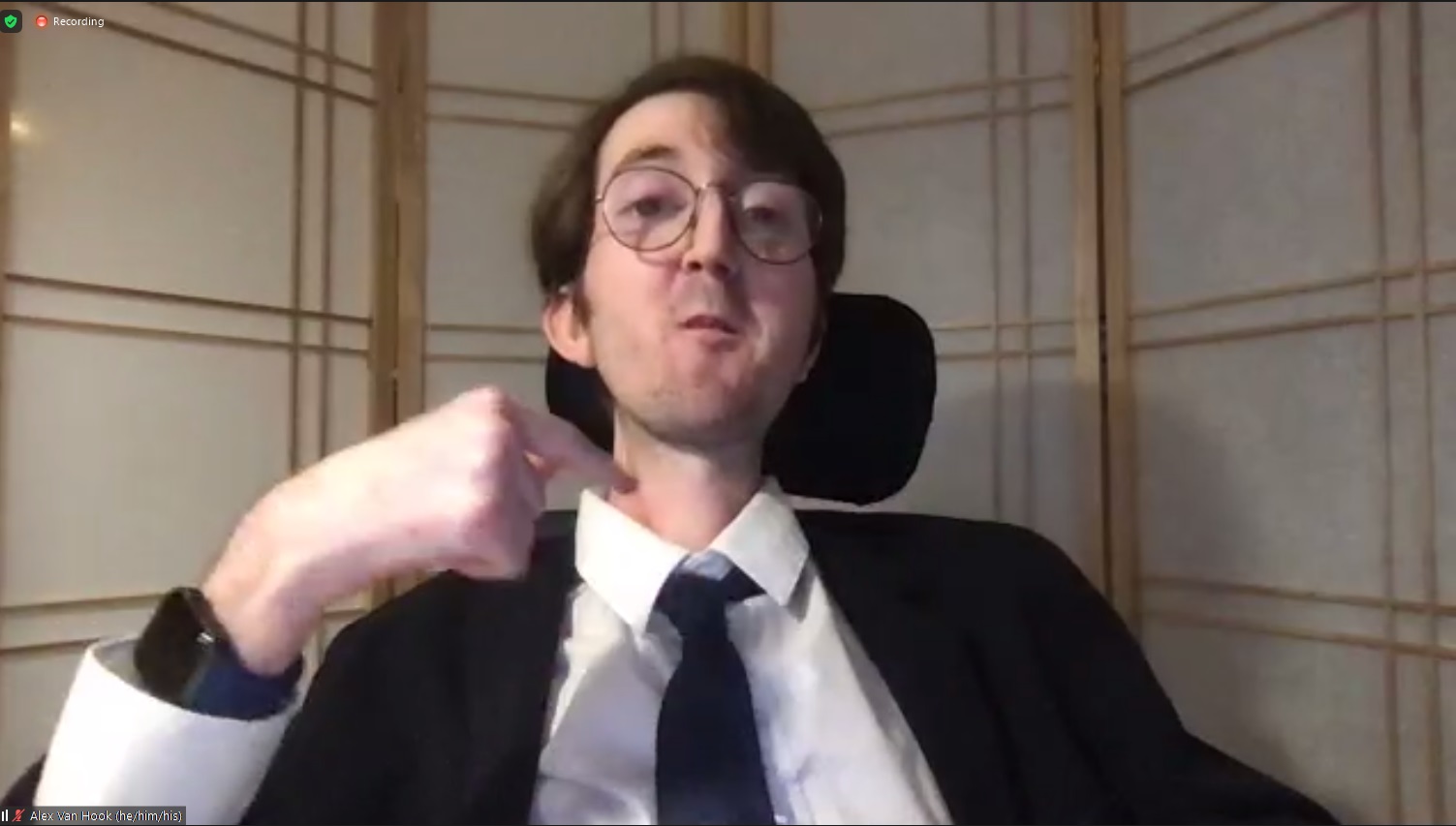Program on Law and Government Celebrates 30th Anniversary of the Americans with Disabilities Act
Webinar Presented by AUWCL and Verizon Reflects on ADA Success and Challenges
Nov. 2, 2020

Thirty years after the Americans With Disabilities Act (ADA) landmark legislation became law, mandating baseline levels of access for the millions of Americans living with disabilities, the Program on Law and Government and event sponsor Verizon held a virtual discussion on what the ADA and its champions achieved and looked forward to the challenges ahead.
The Oct. 27 webinar, “ADA30: Looking Back, Moving Forward,” encompassed a mix of live video discussions and recorded conversations, and analyzed how while the ADA’s passage culminated decades of passionate disability rights and disability justice advocacy, it could not and did not realize total inclusion. Law and Government Faculty Director Fernando Laguarda welcomed attendees to the event, cosponsored by AUWCL’s Disability Rights Law Clinic, Disability Law Society, and Student Bar Association.
Learn about AUWCL's Disability Rights Law Clinic

“This is a celebration, but also a critical look at the ways in which the ADA can be improved or needs to be supplemented with other legislation, or efforts that go beyond what the law can do,” said Professor and Acting Dean Robert Dinerstein, founder and director of the Disability Rights Law Clinic and moderator of the event.
“We all know that ADA also stands for ‘all deserve access,’” said keynote speaker Senator Ed Markey (D-MA). “In Congress, I’ve been honored to work, advocate, and protect the rights of Americans with disabilities,” he said, noting his work on the 1988 Hearing-Aid Compatibility Act and Telecommunications Accessibility Enhancement Act; the 1990 ADA and the establishment of a nation-wide telecommunications relay service; the 1996 Telecommunications Act; and the 21st Century Communications and Video Accessibility Act in 2010, a capstone law “representing the culmination of all of these efforts.”
“I believe accessibility is about participation and when we expand the circle of inclusion, we evolve as a people,” Markey said. “Together, we will ensure the ADA continues to fulfill its promise, and we can build on this remarkable law into the future.”

For former Special Olympics athlete Ricardo Thornton, the ADA has opened the door to opportunities that were never before feasible.
“One of the biggest doors it opened for me is that I get to make decisions, I get to choose, and I get to live in a house where we get to cook and live as independently as we can,” Thorton told Dinerstein. “The other door is employment – I’ve been working at the library for 42 years, and I got [the job] through Special Ed…Understand that because you’re in Special Ed, it does not mean you’re not going to achieve goals. Take a look at what I’ve done. You can do the same.”
The webinar’s panel discussion featured insights from:
- Judy Heumann, Former Special Advisor for International Disability Rights, Department of State, Obama Administration
- Lydia X. Z. Brown, Policy Counsel, Privacy and Data Project, Center for Democracy and Technology
- Keri Gray, Senior Director of Stakeholder Engagement and Strategic Communications, American Association of People with Disabilities
- Zainab Alkebsi, Policy Counsel, National Association for the Deaf
- Deepa Goraya, Public Rights Project Fellow, Delaware Attorney General
Shortcomings of the ADA have been underscored by the COVID-19 pandemic, according to Brown.
“The promise of the ADA, of nondiscrimination and equality of opportunity and protecting us from the worst possible harms of discriminatory treatment, has not been fulfilled,” they said. “We would not be having a conversation right now about limited healthcare supplies and personnel necessitating hospitals to decide who they think is worthy or care, or who they predict is more likely to outlive COVID versus succumb to it. All of which is predicated on data about our actual lives – that disabled people, especially of color and queer and transgender disabled people, are now and have always been subjected to shorter life spans because of lack of quality healthcare.”

AUWCL 2L Alex Van Hook, member of Disability Rights Society, delivered a statement during closing remarks, noting that legal education can be a powerful tool to push for change in both the law and society, so that it can become more accessible and inclusive.
“But we need more lawyers with disabilities at the table,” he said. “It is essential that law schools and bar associations are considerate about accessibility and inclusion, so that law students and lawyers who have disabilities are able to focus on developing their legal analysis skills instead of focusing their efforts on struggles.”